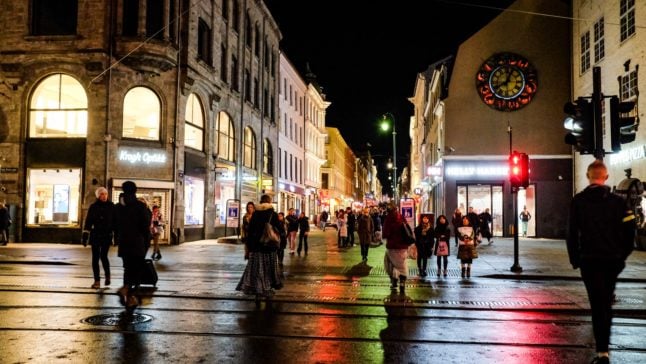The five-step plan was presented by the city’s mayor, Raymond Johansen, at a press conference on Tuesday.
“When we closed the city on November 9th, no one thought that the restrictions would last for half a year,” Johansen said.
“If infections continue to go down and we all follow the rules, then we can look forward to a gradual transition to a city and life as we remember it,” the mayor said.
The news will come as welcome relief to the city’s residents given measures have been in place since November 9th, when an alcohol ban was introduced. In January, most shops and restaurants were also forced to close.
As of Tuesday, April 27th, the limit of a maximum of two visitors being allowed has been upped to ten. Outdoor events for up to ten people can go ahead. Up to 20 people under the age of 20 can partake in organised sports or leisure activities.
Despite allowing Oslo’s residents to entertain up to ten guests, the city’s mayor has urged people to stick to national advice, which recommends a maximum of five visitors.
“Even though we can all have more visitors, I ask everyone to remain restrained and careful. Nationally, the government has a recommendation for a maximum of five guests. Of course, this advice also applies to Oslo,” Johansen said.
Johansen also said that the city council would assess moving to step two next week. He stressed that while the council would look at the possibility, there wasn’t a guarantee the city would move onto the next phase.
“It is quite possible that next week we will say it will take some time before we can say exactly when step two can be implemented,” Oslo’s mayor said.
READ MORE: Are Norway’s Covid-19 numbers on track for reopening.
Like the government’s four-step plan for relaxing measures nationally, the city council didn’t offer any solid dates or guarantees of when each step would occur.
Step two would see much of Oslo reopen for business and the return of alcohol being served. It would also include:
- The reopening of non-essential shops, department stores and malls.
- Cafes and restaurants reopening
- Alcohol being allowed to be consumed in hospitality settings as long as guests order food until 10pm.
- Gyms to reopen.
- Organised sports for adults will return as long as they take place outside
- Indoor sports facilities will reopen and allow training and leisure activities for children.
- Museums, galleries and libraries reopen.
- Children’s performances can take place during school hours.
- Worship services with a maximum of 20 people can go ahead with fixed designated seating in place.
Step three would see alcohol service return to usual and entertainment venues such as cinemas, theatres, and bowling alleys reopen. This is what’s planned for step three:
- Cinemas, theatres, concert venues, bingo halls, bowling alleys, playgrounds, and more will reopen.
- A gradual transition from working from home to returning to the office will begin
- Increase in the number allowed at outdoor events.
- Return to one-meter social distancing unless government advises otherwise.
- Alcohol can be served without the requirement to order food
Step Four would further ease measures, and more people will return to the office. However, as the five-step plan is in its infancy, the city council could not give more solid details. This is what the city council expects to happen when it embarks on step four:
- Relaxation of infection control measures for business and leisure activities.
- Relaxation on the number of people allowed indoors and outdoors at private venues.
- More than ten people allowed to visit at home.
- Alcohol is served until midnight.
- More people returning to the office.
- Private gatherings in public places, such as wedding and christening parties, can occur with limited capacity.
Step five would represent the full reopening of Oslo and would remove all local Covid rules and regulations. However, the council has yet to offer any solid dates on when this will be.



 Please whitelist us to continue reading.
Please whitelist us to continue reading.
Member comments